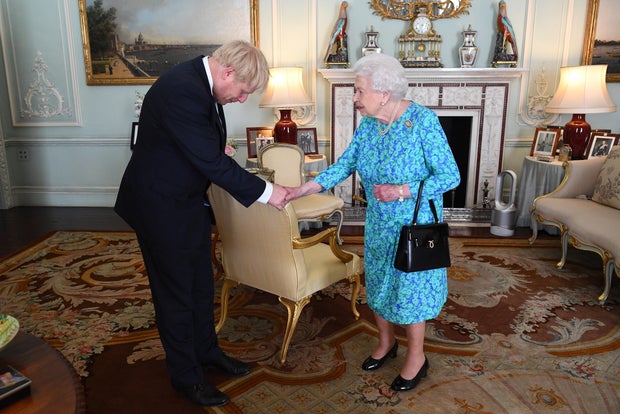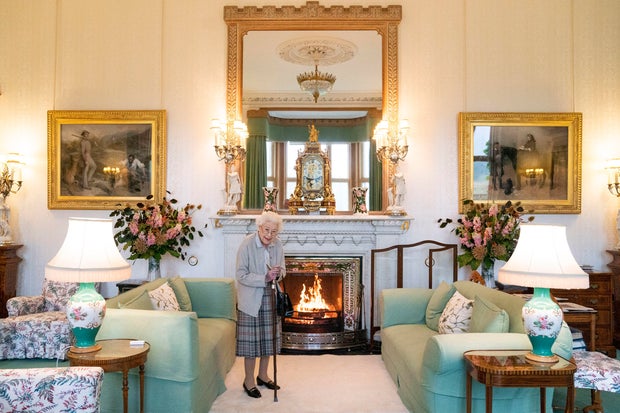Former U.K. Prime Minister Boris Johnson claims late Queen Elizabeth II had bone cancer

Former British Prime Minister Boris Johnson claims in his soon-to-be released memoir that Queen Elizabeth II was diagnosed with bone cancer before her death in September 2022 at the age of 96. His assertion represents a significant break with royal protocol between the prime minister’s office and Buckingham Palace, under which the U.K.’s elected leaders generally keep the royal family’s private matter to themselves.
Johnson makes the claim in his upcoming memoir, “Unleashed,” which is scheduled for release later in October. An excerpt from the book, with the purported detail about the late queen’s health, was published this week in Johnson’s regular column for the Daily Mail newspaper.
No senior British government official or member of the royal family has previously disclosed any detail about the late queen’s cause of death. An official death certificate published a week after Queen Elizabeth died listed the cause of death as “old age.”
PA/Victoria Jones
“I had known for a year or more that she had a form of bone cancer, and her doctors were worried that at any time she could enter a sharp decline,” Johnson says in his book. “She seemed pale and more stooped, and she had dark bruising on her hands and wrists, probably from drips or injections.'”
Although he said the queen seemed to be ailing, Johnson said she was still sharp in his final meeting with her.
“Her mind… was completely unimpaired,” he writes. “She still flashed that great white smile in its sudden mood-lifting beauty.”
Johnson who served as the U.K. prime minister between 2019 and 2022, met with Elizabeth just days before she died at her Scottish residence, Balmoral Castle, to hand her his formal resignation as the country’s leader.
JANE BARLOW/POOL/AFP/Getty
Buckingham Palace declined to comment when asked by CBS News about Johnson’s claim. The palace typically does not comment on claims about the private lives of royal family members in books or print.
While Johnson’s remarks break with the long-time tradition of U.K. prime ministers not commenting publicly on what’s said during private meetings with royal family members, they are not entirely unprecedented.
In 2014, then-Prime Minister David Cameron apologized to Queen Elizabeth for disclosing details of a private conversation with her about the results of a referendum in which Scots rejected the idea of Scotland’s secession from the United Kingdom to become an independent state.
Cameron had been overheard telling former New York Mayor Michael Bloomberg the monarch appeared relieved that the Scots had voted in favor of remaining in the U.K., suggesting the late queen had “purred down the line” after the final results.
Former British leaders Tony Blair and Gordon Brown have also given some detail of conversations and interactions they had with Queen Elizabeth in books about their time in office.
Elizabeth’s first son, who became King Charles III upon her death, broke with the long-standing precedent of not revealing personal royal health news earlier this year, when Buckingham Palace revealed that he was being treated for cancer, though the palace has not reveal what type of cancer he’s being treated for.
A month after the revelation about the monarch’s health trouble, his daughter-in-law Catherine, the Princess of Wales, revealed her own cancer diagnosis. Princess Kate said in September that she had completed her treatment, but that her “path to healing” would be long.
World News || Latest News || U.S. News
Source link





